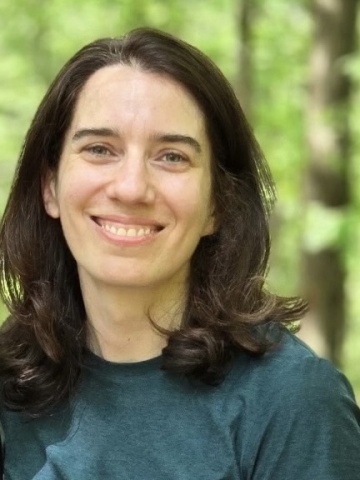Columbia College | Columbia University in the City of New York
The Core Shed Light in an Unexpected Place

Admittedly, I haven’t opened them since graduation. Yet their contents have lingered in my mind. And recently, the ideas scribbled inside came to my rescue, shedding their light in an unexpected place: over phone calls to prison.
On the other end of that line was my swim and fitness coach, turned friend. A Navy veteran, he served at the age of 20 on the USS Nimitz in the early days of the Iraq War.
At our first swimming session a decade ago, I was 37 and could barely make it across one length of the pool. (I had implemented an unadmirable combination of doggie paddle, something resembling backstroke and whatever else kept me afloat for the Columbia swim test.) With his patient guidance, soon I was gliding with ease.
So, when I found out some years later that he was about to get pulled under by incarceration, I wanted to help him stay afloat, just as he had done me.
Watching my friend be led away on the day of sentencing left me in wide-eyed dismay. I’m not a social worker; I had zero experience with prison. But soon, I realized two things — he would need physical comforts inside those walls, and he would need ways to hold onto a positive vision of life beyond those walls.
Providing physical comforts was challenging enough to figure out. How to set up communication accounts, send packages (not as simple as a movie would have us think), access specialized veteran services, pay visits five hours away — the list goes on.
As for positivity? My concerns were for both him and myself. We both needed to find inspiration in something greater to guide us. Then, it happened naturally. Foucault’s critiques rushed to mind. Recollections of Locke’s optimism buoyed me. The Core Curriculum is not just for great alumni discussions. Here, in a dire situation, it equipped me with the ethical and historical perspectives to help make sense of systems we humans create and the choices that drive us.
As soon as my friend gained access to Project Gutenberg, a resource for free e-books, via a prison-issued tablet, he asked for help finding readings that could uplift his spirits. (He’d long ago nicknamed me “the librarian,” having seen the books overflowing from my shelves one day after swim practice.) I already knew that he’d been gripped by The Republic a few months before going inside, after spending an afternoon at the New York Public Library and asking for “one of the oldest books you have.” And so, as I considered his request, my thoughts leapt to The Odyssey. I described the epic hero to him in a way I’d never considered — the nearly forgotten war veteran (a Navy man, too!) trying to find his way back home.
Throughout the time he spent inside, we discussed texts from Plato, Dante and Cervantes, to St. Augustine, Marx and Freud. I recall the satisfaction he expressed in reading Don Quixote in the original Spanish, which left me in awe of his perseverance while simultaneously reminding me of how I powered through the translation late into the night in Butler Library.
Eventually, he was able to enroll in an associate’s degree program through SUNY Higher Education in Prison. I was grateful to have the Core at my fingertips whenever he asked about references that came up in his classes; he could not get information from the internet and there were no encyclopedias available.
For a social psychology class, his professor mentioned Virgil as a guide in the underworld, so we discussed The Inferno and looked for a (Columbia University!) translation, which I promptly shipped his way. Later, he needed more background on Oedipus, so I pasted texts about Sophocles into the prison email system. The corrections censoring system found more than a few terms to flag but it reached him, eventually.
As time went on, readings would lead him down various paths. Grabbing his call just as I stepped off the subway, I could hear: “Have you read The Prince?” Yes! With interest, I listened to him describe the parallels between Machiavelli’s ideas and the group dynamics that he observed in his dormitory, helping me better understand life inside. Before I knew it, our discussion had moved on to Thucydides (“How exactly is that pronounced?” he asked) and the Peloponnesian War.
The associate’s degree earned my swim coach early release, which enabled him to pursue a B.A. once on the outside. He was admitted to a cognitive science internship at Princeton this past summer, where his contribution resulted in his being asked to stay on as a visiting undergrad researcher. Now 40 years old, he is pursuing the Princeton opportunity as well as entering Rutgers to get his degree.
As for me? I am keeping the notebooks, and I still swim laps. The education I received at the College molded me into the person who could offer the kind of support my friend truly needed. Because to get through prison, one certainly needs fresh food packages and the occasional new pair of sweatpants, but it also requires fodder for the spirit and mind.
The Core’s readings not only framed our conversations but gave us both access to a broader view of life in a deeply constricting time. Ultimately, these texts became sources of inner strength — connecting us to centuries of human thought, dignity and transformation. And, in time, they brought us safely back together.

More “Lion’s Den”
- 1 of 5
- ›

